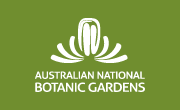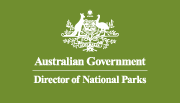An Introduction to the
Volunteer Botanical Training Program
Introduction
The Volunteer Botanical Training Program is designed to allow students of botany, environmental science and related subjects the opportunity for substantive scientific work experience in the Australian National Herbarium and Centre for Australian National Biodiversity Research (CANBR) in Canberra, Australia.
Participants assist with various Centre programs and receive both task-specific training and general botanical training. Work sessions are designed to give students a feel for life in the scientific workforce. Training sessions complement academic studies with both botanical and general workforce-skills components. A certificate of participation and a personal employment reference are supplied upon completion of the Program.
The Program runs for seven weeks full-time over January and February and covers a variety of topics. The Program was first run in 1993. Selection for placement in the Program is by application review. Financial support is not available and participants will work as registered volunteers. A five-day per week commitment is expected.
Participants will work at the Australian National Herbarium located at the Australian National Botanic Gardens (ANBG) and the adjacent Commonwealth Scientific and Industrial Research Organisation (CSIRO) Black Mountain site in Canberra and will receive a broad spectrum of practical botanical training in sessions conducted by professional scientists and conservationists within the Centre for Australian National Biodiversity Research.
Conditions of Program
The Program will require a full-time commitment over the period. The positions are unpaid and participants will work as registered herbarium volunteers. ComCare insurance cover applies. Accommodation assistance cannot be provided. Participants will be directly supervised by staff.
In return for contributing work on a number of herbarium, research and extension projects, participants will receive specific intensive training in field, herbarium and laboratory botanical techniques (see list of topics below). About 40% of time will be spent in formal training sessions; the balance will be spent, using some of the skills taught, working under staff supervision on specimen preparation, plant identification and some research assistance. Some field work will be included in the Program and theoretical issues will be addressed in practical sessions and seminars.
All participants will undertake the common training sessions and for the balance of the time will be divided into teams specializing in helping us with institutional projects and tasks. These will include a great deal of specimen handling and will provide you with practical experience in vascular plant curation, plant research support, cryptogamic research and curation and interpretation and storage of specimen data. Students with serious specific interests or experience in bryophytes, lichens, orchids, eucalypts and botanical databases are especially encouraged to apply.
Outcomes of the Program
Detailed statements of accomplishment will be given at the end of the Program and work references will be available for the future.
Applicants who are able to use this placement for course credits must make all necessary arrangements with their university. We supply supporting documentation only as needed and if specifically requested. Scope for projects required under course-credit arrangements will exist, although these must be negotiated with us individually and are essentially on your own time, not that of the program.
Eligibility
The Program is aimed at students who have just completed their second or third year of study, but we will consider applications from students at other levels and recent graduates. The Program is designed for those intending to undertake a technical or professional career in botany or a closely related discipline (including ecology, resource management and botanical horticulture). Many of the skills taught will have application in a range of specimen-based biological disciplines and will be an advantage to new graduates in the job market.
International students are welcome to apply. However, please note that certain sections of the program (for example, writing job applications) specifically relate to the Australian context.
Training Curriculum
General training topics overlap only partially with the routine assistance that participants will give to staff in the areas of curation and research. You will not become expert in any one topic, but you will become acquainted with most or all of them in a practical and job-oriented way.
The Roles of Herbaria and Botanic Gardens
Research; education; conservation; public information; scientific vouchering; archival techniques for vascular and non-vascular plants; museum standards for biological collections.
Field Techniques
Site and specimen selection; specimen processing; assessing habitat including vegetation, geology, soils; field data recording; map reading and geocode determination; field equipment and field safety; permits and access protocols; propagation material.
Biological Databases
Uses of databases, maintaining data standards and data entry.
Taxonomic Techniques, Revisions and Sources of Botanical Information
Theoretical approaches; classification systems; sources of data; practical uses; basic information sources in the literature; curation following recent revisionary studies; major databases; areas of expertise; scientific naming - principles and the International Code of Botanical Nomenclature.
Scientific Communication
Journals and newsletters; preparing a poster; preparing a seminar; communication with non-scientists.
Jobs in Science
How to get a job - preparing a CV; preparing a job application; interviews; sources of jobs, funding, and places of employment.
Plant Conservation
Role of taxonomists in conservation issues; role of botanical institutions in in-situ and ex-situ conservation, and rare plant management.
Plant Identification
General techniques; use of printed and interactive keys; practical identification work.
Bronwyn Collins or Brendan Lepschi
Email: bronwyn.collins@csiro.au (Bronwyn Collins)
Email: brendan.lepschi@csiro.au (Brendan Lepschi)
Telephone: (02) 6246 5133
Facsimile: (02) 6246 5249
"Volunteer Botanical Training Program"
Australian National Herbarium
GPO Box 1700
CANBERRA ACT 2601
![An Australian Government Initiative [logo]](/images/austgovt_canbr_90px.gif)




